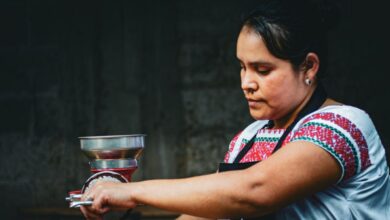What Are the Best Indigenous Cultural Experiences for Families
In an increasingly interconnected world, immersing oneself in the rich tapestry of Indigenous cultures offers families a unique opportunity to learn, connect, and grow. Engaging with Indigenous traditions not only enriches our understanding of history but also fosters respect for diverse ways of life. Here are some of the most captivating Indigenous cultural experiences that families can explore together.
Cultural Festivals and Events
Attending Indigenous cultural festivals is one of the most vibrant ways to experience the traditions, art, and music of Indigenous peoples. Events such as powwows in North America or the Moana Festival in New Zealand showcase traditional dances, music, crafts, and delicious Indigenous cuisine. Families can watch colorful performances, participate in dance circles, and even try their hand at traditional crafts. These festivals are often open and welcoming, inviting families to engage with Indigenous communities, ask questions, and learn about their stories and customs.
Cultural Workshops and Classes
Many Indigenous communities offer workshops where families can learn traditional skills directly from Indigenous artisans and elders. From basket weaving and pottery to storytelling and traditional cooking, participants can gain hands-on experience while understanding the significance of these crafts within the culture. These workshops not only provide a fun, interactive environment for families but also emphasize the importance of preserving and passing down cultural knowledge.
Nature and Land-Based Experiences
Connecting with nature is integral to many Indigenous cultures. Families can participate in guided eco-tours led by Indigenous guides who share their knowledge of the land, plants, and wildlife. These tours often include foraging for edible plants, learning about medicinal herbs, and understanding sustainable practices that have been passed down through generations. Such experiences encourage families to develop a deeper relationship with nature while honoring the wisdom of Indigenous perspectives on environmental stewardship.
Storytelling Sessions
Storytelling is a vital aspect of many Indigenous cultures, serving as a means to pass down history, values, and lessons. Families can seek out storytelling sessions at local cultural centers, museums, or community events. These sessions often feature captivating narratives filled with rich imagery and profound teachings. Engaging with storytelling not only entertains but also sparks conversations among family members about the lessons learned and their relevance in today’s world.
Art Galleries and Exhibitions
Visiting Indigenous art galleries and exhibitions provides families with a visual feast of creativity and expression. Many Indigenous artists use their work to tell stories, reflect cultural beliefs, and address contemporary issues. Families can explore various mediums, from paintings and sculptures to textiles and jewelry. Many galleries also host workshops or artist talks, allowing families to interact with the creators and gain insights into their artistic processes and inspirations.
Volunteering and Community Service
Another meaningful way for families to engage with Indigenous cultures is through volunteering within Indigenous communities. Various organizations offer opportunities to assist with community projects, cultural preservation efforts, or educational initiatives. These experiences can be profoundly rewarding, allowing families to build relationships, understand community needs, and contribute positively. Volunteering not only strengthens connections but also provides invaluable lessons in empathy and social responsibility.
Educational Visits to Cultural Centers
Cultural centers often serve as a hub for education and cultural exchange. Families can visit these centers to learn about Indigenous history, language, and traditions through exhibits, guided tours, and educational programs. Many centers offer interactive exhibits designed for children, making learning fun and engaging. This immersive experience can ignite curiosity and a desire to learn more about Indigenous cultures long after the visit.
Exploring the Future
Engaging with Indigenous cultures provides families with a chance to reflect on the past while considering the futures of these communities. Many organizations focus on cultural revitalization and sustainability, emphasizing the importance of preserving Indigenous heritage for future generations. Families can support these initiatives by participating in events, purchasing authentic Indigenous crafts, or advocating for Indigenous rights and representation in their communities.
Through these diverse experiences, families can embark on a journey of discovery, respect, and appreciation of Indigenous cultures. By engaging thoughtfully and respectfully, families not only enrich their own lives but also contribute to the ongoing narrative of cultural exchange and understanding.







